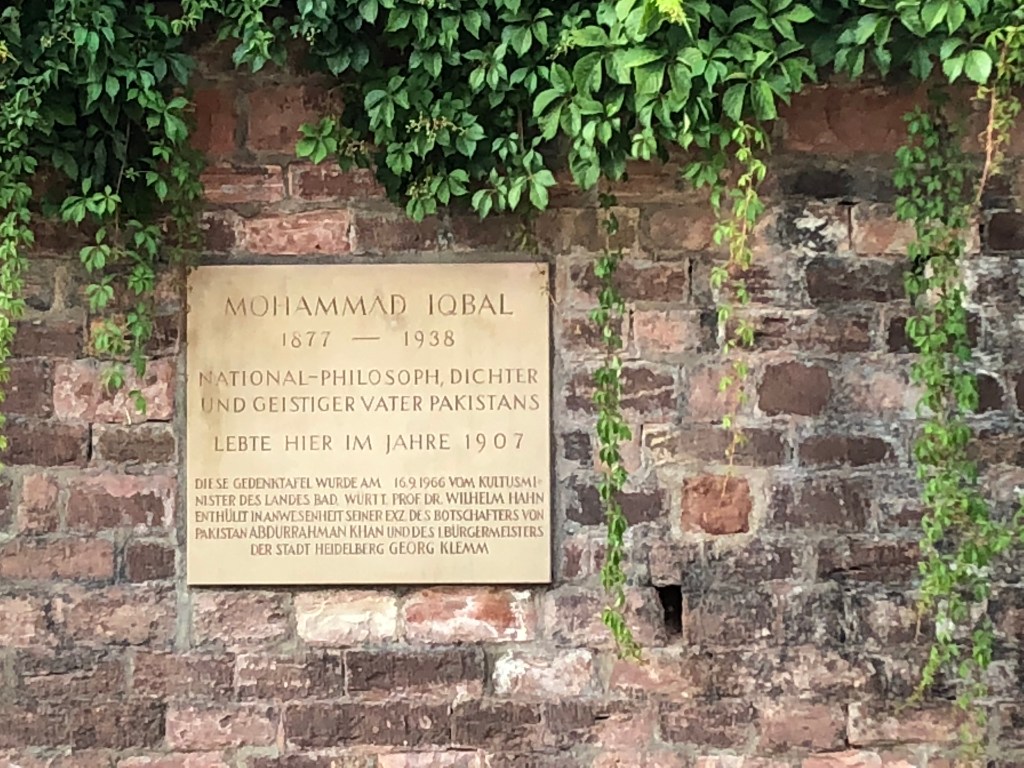
My book manuscript (based on my dissertation in the Department of Religion at Princeton University) on the poet-philosopher Muhammad Iqbal (1877-1938) elucidates the political, economic, and religious reforms he argued were necessary and good for the Muslims of colonial British India. The historical conditions of domination experienced by his community provided the context for Iqbal’s highly influential reformist voice; many see him as the founding father of Pakistan.
Though Iqbal died before the Partition of India, his political philosophy remains deeply significant in South Asia and in wider scholarly conversations about nationalism, community, and tolerance. As such, I begin with Iqbal’s political philosophy by focusing on the concepts of colonialism and liberalism in relation to good governance and Muslim belonging. Next, I move into economic thought and offer research which contributes new perspectives on Iqbal’s work by analyzing his untranslated Urdu book on political economy to shed light on how he relates capitalism and religion in critiques of economic conditions. As an integral part of his approach to bringing about Muslim reform, I then demonstrate that Iqbal’s use and interpretation of hadith (sayings of the Prophet Muhammad) establishes a hermeneutic model that challenges expectations of an Islamic modernist by both explicitly including religious scholars and complicating the canonical hierarchy of religiously authoritative texts in his mixed use of Qur’an, hadith, and Sufi poetry. Focus on hermeneutics allows the co-constituted intellectual history of religious concepts to come forward, and in this way this section illustrates how social and political change creates collaborative moments of remaking norms.
My book manuscript theorizes Iqbal as an exemplar of South Asian Islamic modernism in relation to scholarship on religion in modernity. I argue that the scholarly narrative of religion in modernity is a story of narrowing possibilities for moral ontology. In contrast, Iqbal argues that modernity is an occasion for vastly expanded opportunities for moral reasoning. Iqbal expresses this argument through the use and subversion of Romantic Urdu poetic conventions in the service of modern critical poetry (in addition to prose works). His political poetry bridges early modern expectations of literature with the demands of modern political protest and reform.
By expanding the scholarly conversation about moral possibilities in modernity to include poet-philosophers like Iqbal, it is possible to connect work in South Asian literary studies to a cross-disciplinary debate on the meaning and practice of global intellectual history and the place of religion and literature in it. The theoretical contribution of this work is in demonstrating the limits of current scholarship on modernity and suggesting that the inclusion of South Asian Islamic modernist thinking, for example, affords moral ontology a renewed place in modern life.

